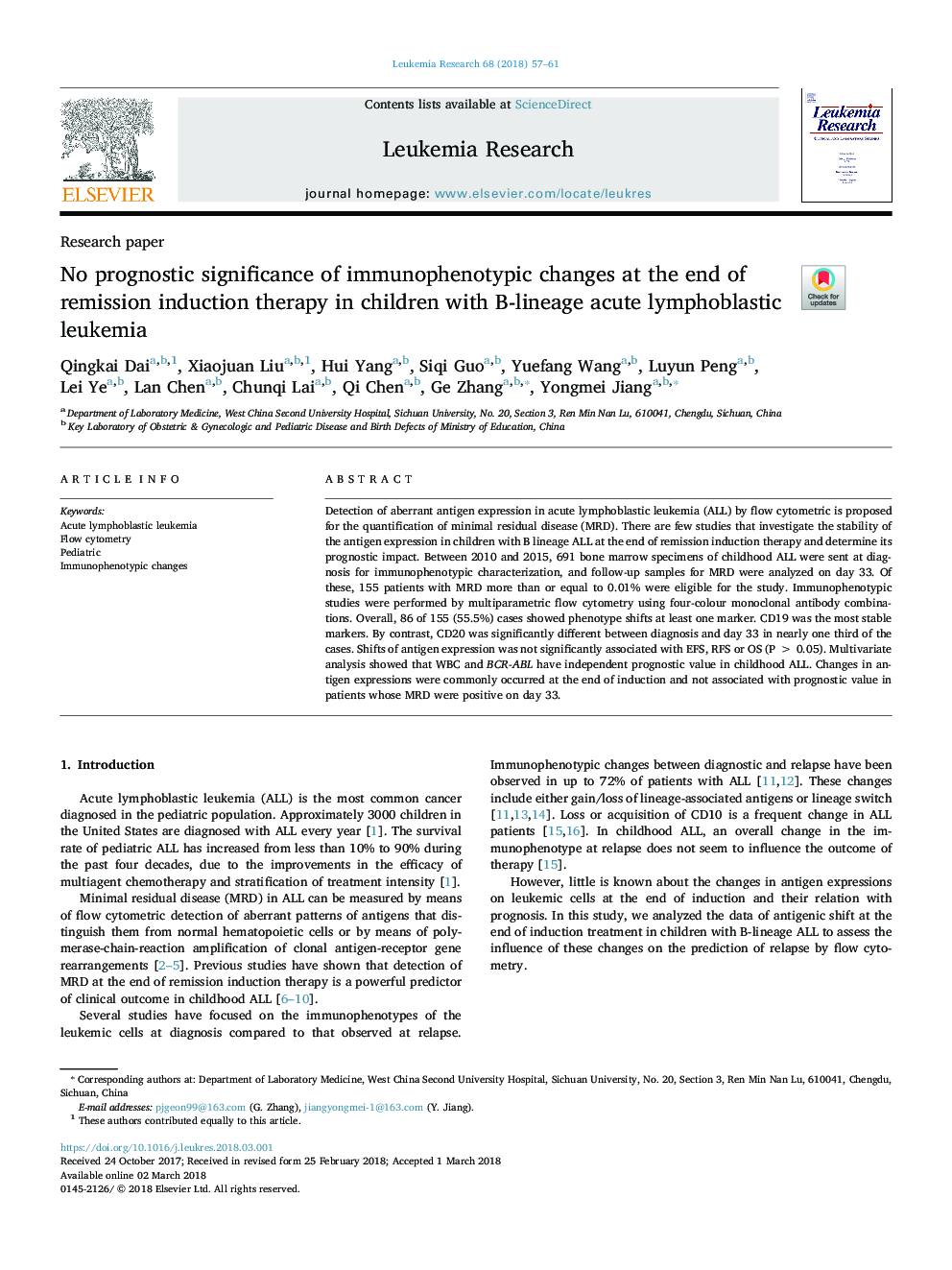| Article ID | Journal | Published Year | Pages | File Type |
|---|---|---|---|---|
| 8453336 | Leukemia Research | 2018 | 5 Pages |
Abstract
Detection of aberrant antigen expression in acute lymphoblastic leukemia (ALL) by flow cytometric is proposed for the quantification of minimal residual disease (MRD). There are few studies that investigate the stability of the antigen expression in children with B lineage ALL at the end of remission induction therapy and determine its prognostic impact. Between 2010 and 2015, 691 bone marrow specimens of childhood ALL were sent at diagnosis for immunophenotypic characterization, and follow-up samples for MRD were analyzed on day 33. Of these, 155 patients with MRD more than or equal to 0.01% were eligible for the study. Immunophenotypic studies were performed by multiparametric flow cytometry using four-colour monoclonal antibody combinations. Overall, 86 of 155 (55.5%) cases showed phenotype shifts at least one marker. CD19 was the most stable markers. By contrast, CD20 was significantly different between diagnosis and day 33 in nearly one third of the cases. Shifts of antigen expression was not significantly associated with EFS, RFS or OS (Pâ¯>â¯0.05). Multivariate analysis showed that WBC and BCR-ABL have independent prognostic value in childhood ALL. Changes in antigen expressions were commonly occurred at the end of induction and not associated with prognostic value in patients whose MRD were positive on day 33.
Related Topics
Life Sciences
Biochemistry, Genetics and Molecular Biology
Cancer Research
Authors
Qingkai Dai, Xiaojuan Liu, Hui Yang, Siqi Guo, Yuefang Wang, Luyun Peng, Lei Ye, Lan Chen, Chunqi Lai, Qi Chen, Ge Zhang, Yongmei Jiang,
